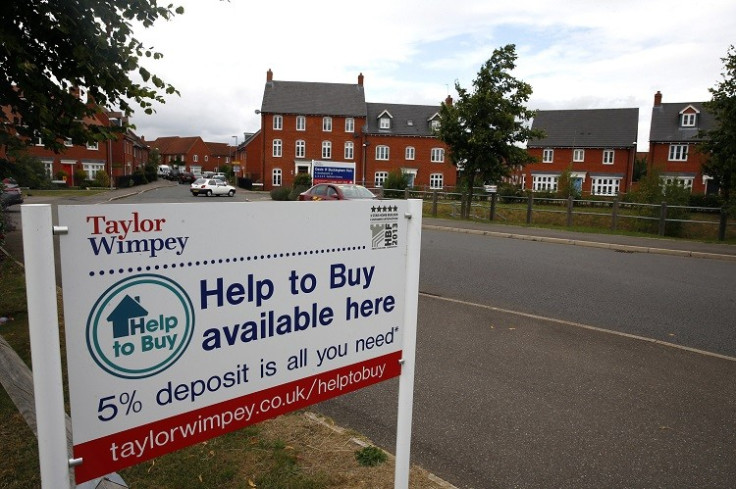Why Help to Buy's Job is Done Amid UK Housing Recovery

It has been dubbed "Help to Bubble" as deflated house prices in the UK begin to bloat again.
But is the government's Help to Buy scheme much less of a threat than its critics are saying?
There have been many vocal opponents of Help to Buy, whose warning yells have grown louder as house prices rise.
Fitch Ratings said it would just mean bigger profits for builders and banks, while one City of London analyst called it "a moronic policy" because it risked blowing a bubble in the housing market.
Now even the Bank of England's deputy governor for financial stability, Sir Jon Cunliffe, has warned it would be dangerous to ignore what's going on in the housing market.
Cunliffe's caution came after months of senior monetary policymakers playing down fears over the housing market, insisting instead that it is recovering rather than overheating.
And the OECD said the UK should look at reining in the market again, possibly by restricting Help to Buy.
The Scheme
Under Help to Buy mortgages are made cheaper through two parts of the scheme.
The first, which launched in April 2013, sees interest-free equity loans help first-time-buyers bring down deposit and mortgage repayment costs, making mortgages more affordable and accessible.
The second part, which launched in October 2013, is a government guarantee on offer for banks' mortgage lending. This has also brought down deposit requirements and interest rates.
Alongside the Help to Buy scheme house prices are soaring. Nationwide said in its closely watched house price index that the average value of a home lifted by 10.9% between April 2013 and the same month a year later, to £183,577.
Impact
While the rise in housing market activity is not in dispute, the impact of Help to Buy is.
Chancellor George Osborne told parliament that he has seen no evidence to suggest that Help to Buy is driving up property prices, despite what the scheme's detractors say.
That assertion is now backed up by a research note from the investment bank Citi suggesting that Help to Buy is having a negligible effect.
There were around 19,000 mortgages approved with aid from the Help to Buy scheme in the year to March 2014.
Citi points out that this accounts for just 2.5% of all mortgage approvals during that period. And of those, 81% were on purchases of homes worth under £250,000.
Moreover, just 7% of those were in London, a property hotspot where Nationwide said prices have added over 18% in value across a single year to an average of £458,000.
"In our view, the numbers for Help to Buy loans are simply not big enough to be the principal cause of the housing boom and, especially, the surge in London house prices," said Michael Saunders, UK economist at Citi.
"The key drivers for the housing boom, in our view, are the mix of ultra-low interest rates, limited housing supply, lower lending spreads, strong job growth, foreign buyers and the improvement in household balance sheets over recent years.
"We suspect that Help to Buy has probably only played a modest role."
Job Done
So it looks like most of the higher housing demand is organic because of the UK economic recovery, which is accelerating and gradually making households better off along the way.
And it's this stronger recovery that will push the Bank of England to hike interest rates, possibly in early 2015, which will put the brakes on housing demand by forcing up the cost of a mortgage.
Moreover, foreign demand will be softened by a new capital gains tax on overseas buyers of UK property.
Plus, if Labour wins the 2015 general election, the party said it will introduce a "mansion tax" on properties worth over £2m, another dampener on foreign demand.
All that's really left to do then is build more houses. Though it's unlikely house building will hit the level needed to match demand, construction firms have already sharply increased their residential work amid the recovery – and it's set to increase further.
"Seven months ago we defended Help to Buy – despite its long-term disadvantages – as a useful tool (alongside other emergency measures such as ultra-low rates, QE, temporary rise in capital allowances, bank funding schemes etc etc) to boost the economy after a long period of near-stagnation," said Citi's Saunders.
"Now, with the economy growing strongly and unemployment falling rapidly, we believe that such stimulus is no longer needed. Its job is done."
Saunders said the chancellor may well cut back the top house price cap of £600,000 by the end of 2014, potentially to £350,000. This limit is the most a property can be purchased for through the Help to Buy scheme.
"The economy no longer really needs ultra-low rates in our view, and such low rates – if sustained - may well fuel a bubble mentality in housing and other assets," said Saunders.
© Copyright IBTimes 2025. All rights reserved.






















